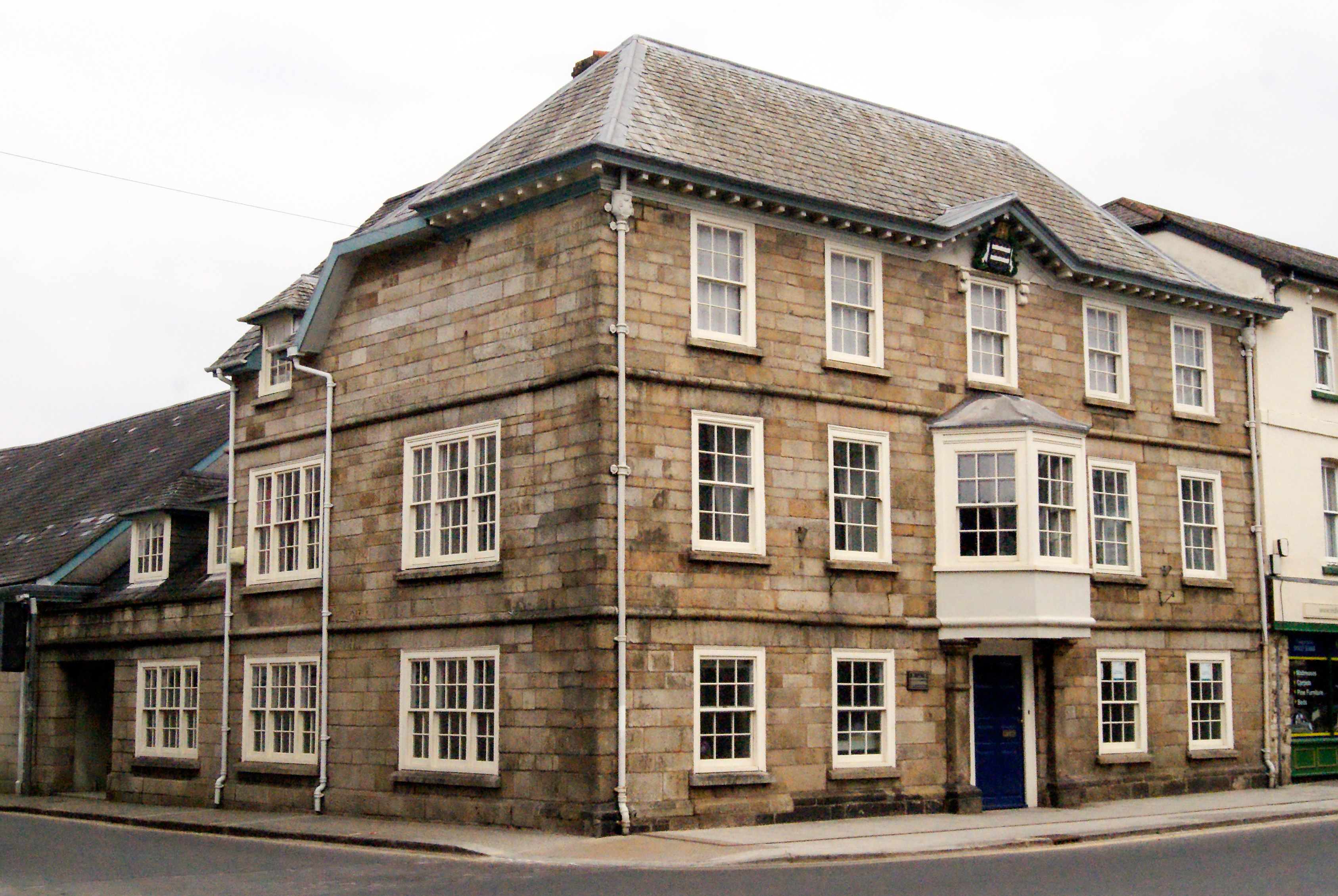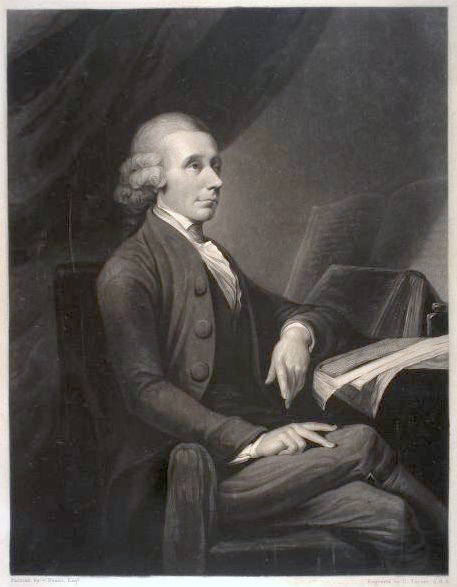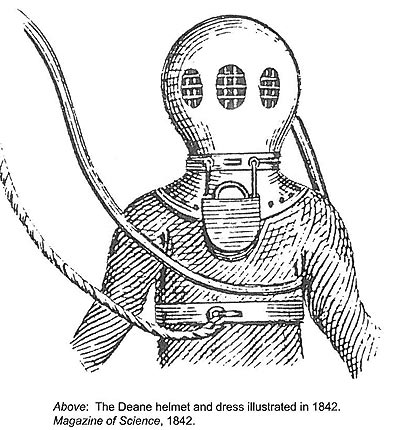|
Henry Fleuss
Henry Albert Fleuss (13 June 1851 – 6 January 1933) was a pioneering diving engineer, and Master Diver for Siebe, Gorman & Co. of London. Fleuss was born in Marlborough, Wiltshire in 1851. In 1878 he was granted a patent which improved rebreathers. His apparatus consisted of a rubber mask connected to a breathing bag, with (estimated) 50-60% O2 supplied from a copper tank and CO2 scrubbed by rope yarn soaked in a solution of caustic potash, the system giving a duration of about three hours. Fleuss tested his device in 1879 by spending an hour submerged in a water tank, then one week later by diving to a depth of 5.5m in open water, upon which occasion he was slightly injured when his assistants abruptly pulled him to the surface. Fleuss's apparatus was first used under operational conditions in November 1880 by Alexander Lambert, lead diver of the Severn Tunnel construction project. Trained by Fleuss, he was able to close a submerged sluice door in the tunnel which had defea ... [...More Info...] [...Related Items...] OR: [Wikipedia] [Google] [Baidu] |
Siebe Gorman
Siebe Gorman & Company Ltd was a British company that developed diving equipment and breathing equipment and worked on commercial diving and marine salvage projects. The company advertised itself as 'Submarine Engineers'. It was founded by Augustus Siebe , a German-born British engineer chiefly known for his contributions to diving equipment. Siebe plc started in the 1970s as a continuation of Siebe Gorman when Siebe Gorman started to take over other firms, to mean the new conglomerate to distinguish it from Siebe Gorman's original breathing apparatus and diving gear core business. Siebe plc was once one of the United Kingdom's largest engineering businesses. It was a constituent of the FTSE 100 Index but in 1999 it merged with BTR plc to form Invensys. Invensys was taken over by the French multinational Schneider Electric for £3.4 billion in January 2014. History *1788: Augustus Siebe was born in Saxony in Germany, named Christian Augustus Siebe.pages 16 etseq, ''The Inte ... [...More Info...] [...Related Items...] OR: [Wikipedia] [Google] [Baidu] |
Guericke
Otto von Guericke ( , , ; spelled Gericke until 1666; November 20, 1602 – May 11, 1686 ; November 30, 1602 – May 21, 1686 ) was a German scientist, inventor, and politician. His pioneering scientific work, the development of experimental methods and repeatable demonstrations on the physics of the vacuum, atmospheric pressure, electrostatic repulsion, his advocacy for the reality of "action at a distance" and of "absolute space" were noteworthy contributions for the advancement of the Scientific Revolution. Von Guericke was a very pious man in the Dionysian tradition and attributed the vacuum of space to the creations and designs of an infinite divinity. Von Guericke described this duality "as something that 'contains all things' and is 'more precious than gold, without beginning and end, more joyous than the perception of bountiful light' and 'comparable to the heavens'." Biography Early life and education Otto von Guericke was born to a patrician family of Magdeburg. ... [...More Info...] [...Related Items...] OR: [Wikipedia] [Google] [Baidu] |
People From Marlborough, Wiltshire
A person ( : people) is a being that has certain capacities or attributes such as reason, morality, consciousness or self-consciousness, and being a part of a culturally established form of social relations such as kinship, ownership of property, or legal responsibility. The defining features of personhood and, consequently, what makes a person count as a person, differ widely among cultures and contexts. In addition to the question of personhood, of what makes a being count as a person to begin with, there are further questions about personal identity and self: both about what makes any particular person that particular person instead of another, and about what makes a person at one time the same person as they were or will be at another time despite any intervening changes. The plural form "people" is often used to refer to an entire nation or ethnic group (as in "a people"), and this was the original meaning of the word; it subsequently acquired its use as a plural form of per ... [...More Info...] [...Related Items...] OR: [Wikipedia] [Google] [Baidu] |
British Inventors
British may refer to: Peoples, culture, and language * British people, nationals or natives of the United Kingdom, British Overseas Territories, and Crown Dependencies. ** Britishness, the British identity and common culture * British English, the English language as spoken and written in the United Kingdom or, more broadly, throughout the British Isles * Celtic Britons, an ancient ethno-linguistic group * Brittonic languages, a branch of the Insular Celtic language family (formerly called British) ** Common Brittonic, an ancient language Other uses *''Brit(ish)'', a 2018 memoir by Afua Hirsch *People or things associated with: ** Great Britain, an island ** United Kingdom, a sovereign state ** Kingdom of Great Britain (1707–1800) ** United Kingdom of Great Britain and Ireland (1801–1922) See also * Terminology of the British Isles * Alternative names for the British * English (other) * Britannic (other) * British Isles * Brit (other) * Briton (d ... [...More Info...] [...Related Items...] OR: [Wikipedia] [Google] [Baidu] |
Diving Engineers
Diving most often refers to: * Diving (sport), the sport of jumping into deep water * Underwater diving, human activity underwater for recreational or occupational purposes Diving or Dive may also refer to: Sports * Dive (American football), a type of play in American football * Diving (association football), a simulation of being fouled * Diving (ice hockey), embellishing an infraction in an attempt to draw a penalty * Sport diving (sport), competitive scuba diving using recreational techniques in a swimming pool * Taking a dive, or match fixing, intentionally losing a match, especially in boxing Film and television Film * ''Dive'' (film), a 1929 German silent film * ''The Dive'' (1990 film), a Norwegian action thriller * ''Dive!'' (film), a 2010 documentary film by Jeremy Sefert * ''Dive'', a 2014 New Zealand short film written and directed by Matthew J. Saville __NOTOC__ Matthew J. Saville is an actor, writer and film director from New Zealand. Early life and e ... [...More Info...] [...Related Items...] OR: [Wikipedia] [Google] [Baidu] |
Turks And Caicos Islands
The Turks and Caicos Islands (abbreviated TCI; and ) are a British Overseas Territory consisting of the larger Caicos Islands and smaller Turks Islands, two groups of tropical islands in the Lucayan Archipelago of the Atlantic Ocean and northern West Indies. They are known primarily for tourism and as an offshore financial centre. The resident population in July 2021 was put at 57,196, making it the third-largest of the British overseas territories by population. The islands are southeast of Mayaguana in the Bahamas island chain and north of the island of Hispaniola (Haiti and the Dominican Republic). Grand Turk (Cockburn Town), the capital since 1766, is situated on Grand Turk Island about east-southeast of Miami, United States. They have a total land area of . The islands were inhabited for centuries by indigenous peoples. The first recorded European sighting of them was in 1512. In subsequent centuries, they were claimed by several European powers, with the British ... [...More Info...] [...Related Items...] OR: [Wikipedia] [Google] [Baidu] |
British Newspaper Archive
The British Newspaper Archive web site provides access to searchable digitized archives of British and Irish newspapers. It was launched in November 2011. History The British Library Newspapers section was based in Colindale in north London, until 2013, and is now divided between the St Pancras and Boston Spa sites. The library has an almost complete collection of British and Irish newspapers since 1840. This is partly because of the legal deposit legislation of 1869, which required newspapers to supply a copy of each edition of a newspaper to the library. London editions of national daily and Sunday newspapers are complete back to 1801. In total, the collection consists of 660,000 bound volumes and 370,000 reels of microfilm containing tens of millions of newspapers with 52,000 titles on 45 km of shelves. After the closure of Colindale in November 2013, access to the 750 million original printed pages was maintained via an automated and climate-controlled storage facilit ... [...More Info...] [...Related Items...] OR: [Wikipedia] [Google] [Baidu] |
Western Times (Exeter)
Western Times may refer to: * Western Times (Exeter) - newspaper published in Exeter, Devon, England from 1829 to 1952 * The Bathurst Free Press and Mining Journal - Australian newspaper in Bathurst, New South Wales, published as the Western Times between 1936 and 1963 {{disambiguation ... [...More Info...] [...Related Items...] OR: [Wikipedia] [Google] [Baidu] |
Okehampton
Okehampton ( ) is a town and civil parishes in England, civil parish in West Devon in the English county of Devon. It is situated at the northern edge of Dartmoor, and had a population of 5,922 at the 2011 census. Two electoral wards are based in the town (east and west). Their joint population at the same census was 7,500. Okehampton is 21 miles (33 km) west of Exeter, 26 miles (42 km) north of Plymouth and 24 miles (38 km) south of Barnstaple. History Okehampton was founded by the Saxons. The earliest written record of the settlement is from 980 AD as , meaning settlement by the Ockment, a river which runs through the town. It was recorded as a place for slaves to be freed at cross roads. Like many towns in the West Country, Okehampton grew on the medieval wool trade. Notable buildings in the town include the 15th century chapel of James, son of Zebedee, St. James and Okehampton Castle, which was established by the Normans, Norman High Sheriff of Devon, Sherif ... [...More Info...] [...Related Items...] OR: [Wikipedia] [Google] [Baidu] |
Oxygen
Oxygen is the chemical element with the symbol O and atomic number 8. It is a member of the chalcogen group in the periodic table, a highly reactive nonmetal, and an oxidizing agent that readily forms oxides with most elements as well as with other compounds. Oxygen is Earth's most abundant element, and after hydrogen and helium, it is the third-most abundant element in the universe. At standard temperature and pressure, two atoms of the element bind to form dioxygen, a colorless and odorless diatomic gas with the formula . Diatomic oxygen gas currently constitutes 20.95% of the Earth's atmosphere, though this has changed considerably over long periods of time. Oxygen makes up almost half of the Earth's crust in the form of oxides.Atkins, P.; Jones, L.; Laverman, L. (2016).''Chemical Principles'', 7th edition. Freeman. Many major classes of organic molecules in living organisms contain oxygen atoms, such as proteins, nucleic acids, carbohydrates, and fats, as ... [...More Info...] [...Related Items...] OR: [Wikipedia] [Google] [Baidu] |
Marlborough, Wiltshire
Marlborough ( , ) is a market town and Civil parishes in England, civil parish in the England, English Counties of England, county of Wiltshire on the A4 road (England), Old Bath Road, the old main road from London to Bath, Somerset, Bath. The town is on the River Kennet, 24 miles (39 km) north of Salisbury and 10 miles (16 km) southeast of Swindon. History The earliest sign of human habitation is the Marlborough Mound, a prehistoric tumulus in the grounds of Marlborough College. Recent radiocarbon dating has found it to date from about 2400 BC. It is of similar age to the larger Silbury Hill about west of the town. Legend has it that the Mound is the burial site of Merlin (wizard), Merlin and that the name of the town comes from Merlin's Tumulus, Barrow. More plausibly, the town's name possibly derives from the medieval term for chalky ground "marl"—thus, "town on chalk". However more recent research, from geographer John Everett-Heath, identifies the original O ... [...More Info...] [...Related Items...] OR: [Wikipedia] [Google] [Baidu] |
Hardhat Diver
Standard diving dress, also known as hard-hat or copper hat equipment, deep sea diving suit or heavy gear, is a type of diving suit that was formerly used for all relatively deep underwater work that required more than breath-hold duration, which included marine salvage, civil engineering, pearl shell Underwater diving, diving and other commercial diving work, and similar naval diving applications. Standard diving dress has largely been superseded by lighter and more comfortable equipment. Standard diving dress consists of a diving helmet made from copper and brass or bronze, clamped over a watertight gasket to a waterproofed canvas suit, an air hose from a surface-supplied diving, surface-supplied manually operated diver's pump, pump or low pressure breathing air compressor, a diving knife, and weights to counteract buoyancy, generally on the chest, back and shoes. Later models were equipped with a diver's telephone for Diver communications#Voice communications, voice communicati ... [...More Info...] [...Related Items...] OR: [Wikipedia] [Google] [Baidu] |

_1938.jpg)


.jpg)
